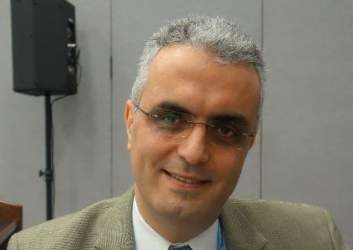A task force convened by the American Board of Internal Medicine (ABIM) has proposed replacing the board’s 10-year Maintenance of Certification (MOC) exam with more meaningful assessments and explore certification in specialized areas.
The Assessment 2020 Task Force , which convened in 2013 to evaluate the ABIM MOC program, released its proposals in a Sept. 16 report . The report aims to inform ongoing redesign of ABIM’s Certification and MOC programs, according to Dr. Richard J. Baron , ABIM president and CEO.
“Feedback collected by the Assessment 2020 Task Force is very consistent with feedback ABIM is hearing from the community regarding the MOC program,” Dr. Baron said in a statement . “These recommendations are meant to be a catalyst for further discussion and can ultimately lead to an improved MOC program for diplomates.”
The independent task force includes representatives from ABIM leadership and experts in assessment, education, health care, and consumer advocacy.
The task force recommends that ABIM focus MOC assessments on cognitive and technical skills; recognize specialization; and consider certification in specialized areas without requiring maintenance of underlying certificates. On that final recommendation, ABIM has already started such changes. In July, the board announced that no disciplines within its MOC program will require underlying certification and that all diplomates can choose the certifications they wish to maintain.
The task force also recommends that ABIM replace its 10-year secure exam with more frequent assessments. The assessments could be taken in a secure setting – possibly at home with remote authentication – with the potential for some portion to be open-book but still timed, according to the task force report.
“The Assessment 2020 Task Force members provided useful insights and recommendations that will be instrumental as we reshape certification to meet physicians’ and society’s changing needs,” Dr. Clarence H. Braddock III, chair of the ABIM Board of Directors said in a statement. “We now need to hear constructive feedback from the internal medicine community on these recommendations, begin to determine their feasibility and develop implementation plans where needed.”
Dr. Wayne J. Riley, president of the American College of Physicians (ACP) said the college is hopeful that the new report will lead to positive changes that raise the MOC’s relevance and value to physicians and patients.
“In addition to getting input on the report from ACP leadership, we are also seeking input from ACP members on the broader issue of MOC,” Dr. Riley said in an interview. “We remain committed to advocating for substantial and meaningful reforms to the ABIM MOC program.”
The American College of Cardiology (ACC) commended the task force for its work to gather input from stakeholders and develop the report.
“As evidenced by the report, there is still much to be done despite the changes over the last several months,” Dr. Kim Allan Williams Sr. , ACC president and Dr. Robert A. Shor, chair of the ACC Board of Governors, wrote in a blog post . “The college understands the frustration of its members around the current MOC process and the issue continues to be a top priority for the college. In particular, the ACC strongly agrees with the report about the need to develop a new, externally validated process for measuring competence to replace the 10-year exam – with all deliberate haste! … We are committed to finding a solution or solutions that best meet the professional needs of clinicians, while also giving patients, the public and other stakeholders confidence that the care provided by their physicians is of the highest quality.”
ABIM has already made a number of changes to its MOC program in recent months, including suspending quality improvement and patient safety requirements in the program, no longer requiring underlying certifications for MOC, and offering a 1-year grace period for physicians who fail the MOC examination in their discipline. Additionally, ABIM has developed a new partnership with the Accreditation Council for Continuing Medical Education (ACCME) to accept more forms of continuing medical education (CME) for MOC credit.
ABIM has also updated its the blueprint for the internal medicine exam with physician input, and included more performance feedback on score reports that diplomates receive with examination results.
On Twitter @legal_med





